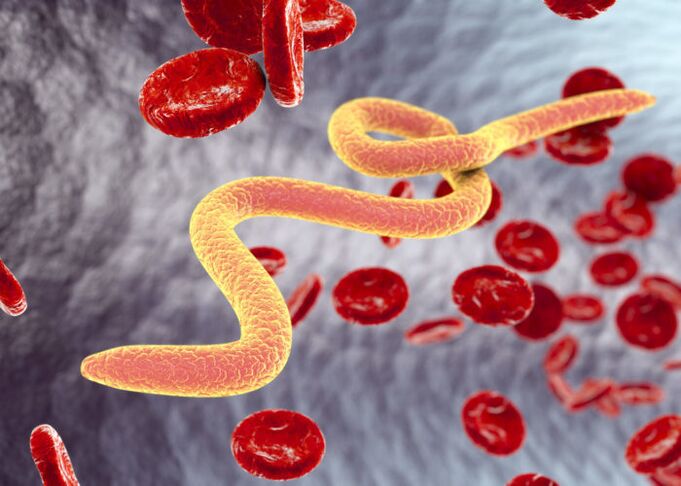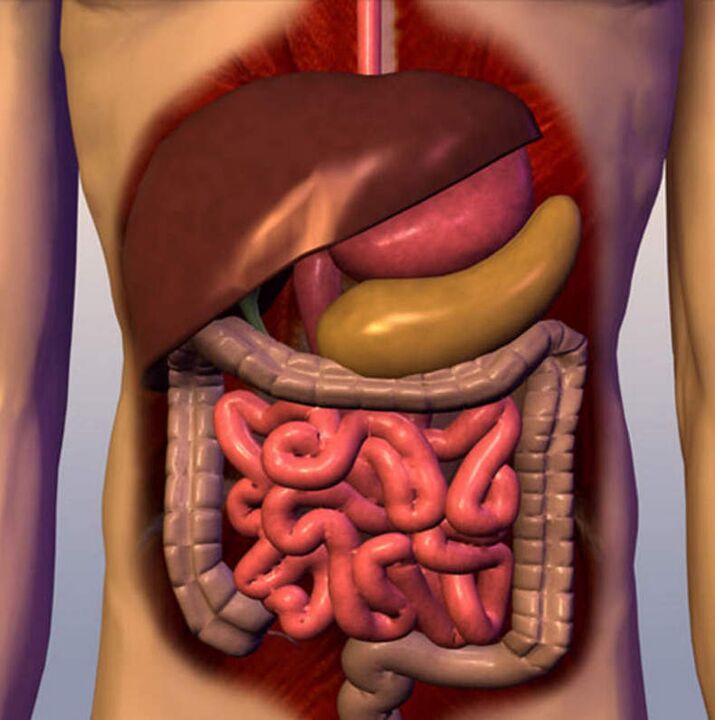The parasites are unusually persistent. For example, they can wait for their "master" for years, being in the egg or larva stage. Once in the body, ie in a life-friendly environment, parasites enter the active phase of existence, causing harm to human health.

People all over the world suffer from parasitic infections. Experts estimate that about 90% of the population of high-income countries are infected with one or another human parasite. It is necessary to know the ways of infection with parasites and the symptoms of their presence in the body to avoid possible health complications.
Symptoms of human parasites
The development of tourism around the world is a prerequisite for the unimpeded migration of a wide range of parasites. In addition, it is worth noting that in the process of evolution these organisms have developed high resistance to environmental conditions and survive.
Where can you catch parasites?
Parasites are waiting for their new "host" on a variety of surfaces, in sinks, washbasins, toilets, natural ponds.

The simplest parasites - lamblia are widespread in preschool institutions: they can infect a child with a simple change of diapers and / or violations of sanitary rules.
There is a high risk of infection with helminths (worms) in food outlets.
The level of the institution does not guarantee 100% protection against infection. The parasites enter the human body along with raw fish (sushi), undercooked meat (pork), with insufficiently washed vegetables, fruits and herbs.
Cooking food in a microwave oven has the potential to spread a parasitic infection: food heats up unevenly in a microwave oven. As a last resort, this oven should be used for heating, but not for cooking.
Tap water is a favorable environment for all types of organisms. And chlorination does not destroy Giardia and Cryptosporidium.
Pets are active distributors of helminths (especially cats). If you do not have a pet, you can get infected through the soil in parks, sandpits and playgrounds, because there are dogs walking.

Parasites are easy to find, but difficult to find.
Parasites cannot always be detected by simple (faecal analysis, test for eggs and parasites) or modern diagnostic methods. Amoebic infection, for example, is registered in only 1 in 10 cases of stool testing.
This means that a negative test result for parasites does not guarantee the absence of parasites.
Parasites disguise themselves as other diseases
- Behind the apparent syndrome of chronic fatigue and candidiasis, giardiasis can be successfully hidden;
- Ulcerative colitis will be a case of amoebiasis;
- Migraine, depression are manifested in toxoplasmosis;
- Roundworms act as a pathogen in allergies and asthma, atopic dermatitis, eczema in the younger age group;
- There is a hypothesis of a link between type 1 diabetes and helminths (tapeworms);
- There are precedents for the treatment of hyperactivity and attention deficit disorder after pinworm removal;
- Convulsions are possible when infected with swine tapeworm;
- Blastocytosis is a cause of intestinal leaks, leading to autoimmune diseases and food allergies.
Signs of parasitic infection
- Diseases of an autoimmune nature;
- anemia;
- Sleep problems, gnashing of teeth. The parasites are activated at night and during the full moon phase. If insomnia is felt during a full moon - think about it;
- Damage to the skin and mucous membranes: rash, acne, nail fungus, eczema, irritation / itching of the skin and mucous membranes of the nose, ears, eyes, around the anus, vesicles on the lower lip and oral mucosa;
- Nail biting;
- Emotional instability: irritability, anxiety, depression, mood swings. Parasites secrete neurotoxins.
- Chronic fatigue;
- Weight problems: loss of appetite or, conversely, strong appetite, cravings for sweets, obesity, underweight in children.
- Occasional increase in body temperature;
- Dark circles under the eyes;
- food allergy. The most commonly reported latent allergy to dairy products;
- Nocturnal enuresis;
- Diseases of the genitourinary system: impotence, erectile dysfunction, prostate disease, PMS and menstrual cycle, cysts and fibroids, fluid retention;
- Change in the size of the liver and / or spleen;
- Loss of muscle mass, muscle weakness, cramps and tingling in the upper and lower limbs;
- Infections of chronic and recurrent nature: viral, bacterial and fungal (recurrent candidiasis);
- Night sweats;
- Unpleasant "scent" of the body and breath.

The most striking symptoms of the gastrointestinal tract:
- excess saliva,
- itching around the anus,
- gallbladder problems
- heartburn, hemorrhoids,
- gas formation,
- constipation
- diarrhea,
- vomiting
- intolerance to gluten, casein and lactose.
It is characterized by alternating constipation and diarrhea.
The alarming symptoms of a parasitic infection are:
- cider with bacterial overgrowth
- irritable bowel syndrome and irritable bowel disease.
As you can see, it is not so easy to detect the presence of parasites in the body. But some alarms and conditions should alert you.
P. S. And don't forget that just by changing your consumption, we change the world together!

















